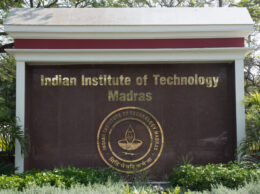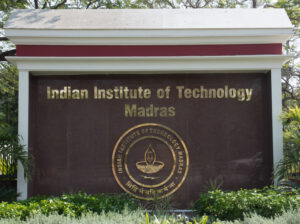“Supreme Court of India played a proactive role in recognizing Right to Education as one of the fundamental right given to the citizens of India. With the enactment and implementation of Right to Education by Indian Parliament, the social and economic status of citizens especially the vulnerable section of society drastically improved,” said Justice Surya Kant, Judge Supreme Court of India. He was speaking during the inaugural session of two-day International Webinar of “Global Challenges in Modern Times” hosted by Chandigarh University. Supreme Judges from 10 countries including India, USA, UK, Nepal, EU, Brazil and Australia are taking part to share their thoughts and ideas on important issues like Right to Education, Nuclear Energy & Environment Protection, Laws for Migrant Population and Human Rights. More than 25,000 students and faculty from Law Schools all over India participated on the first day of the International Webinar organized by Chandigarh University.
While delivering his address, Justice Surya Kant said, “An Educated person is more aware about the fundamental rights and duties that are offered by the constitution of the nation. Although it took 100 years for India to enact and implement Right to Education (RTE) as fundamental right but it unlocked new avenues and opportunities in the developing society which has provided the necessary platform to empower the sections of society like women.” Justice Kant further added that, “Women today has dismantled the social barriers and inequality that the world had enforced upon them. This has been possible in country like India only because of recognition of Right to Education as important by the Union and State Governments.”
Speaking further on Right to Education, Justice Bhushan Ramakrishna Gavai, Judge Supreme Court of India said, “Right to life provided to us under the Article 21 of Constitution of India is meaningless without the incorporation Right to Education as Dr. B.R.Ambedkar said that what is the use of rights if a person does not possess the knowledge of using them.” With the implementation of New Education Policy which offers flexibility, more and more deprived sections of the society of our country will come under the ambit of education and will hence improve their social and economic status, Justice Gavai added.
“The need for clean energy is increasing day-by-day due to the non-stop degradation of our environment with the excessive usage of fossil fuels by the mankind,” said Justice Sabrina McKenna, Associate Justice, Supreme Court of Hawaii. The demand for electricity is increasing twice as fast as the total energy production in the world which is currently being generated 76% from the fossil fuels like Coal & Oil. Justice Sabrina further added that, “92% of India’s total electricity generation is from thermal power plants which will reduce to 75% by 2040. But by then the total energy requirement of India will increase by 156% which will negating the effect of reduced dependence on production of electricity from coal. With the excessive usage of fossil fuels, global warming has resulted in increase in the sea levels which has endangered many global port cities like Kolkata, Mumbai, Karachi which will eventually become inhabitable,” said Justice Mckenna.
Justice Brian Preston, Chief Judge of Land & Environment, Court of New South Wales said, “World is currently living under Climate Emergency and 11,000 scientists world over have raised their concerns that the threat of catastrophic disaster due to global warming is now becoming a harsh reality.” Countries like India have committed to reduce its carbon emissions by 35% by generating 9% of the total electricity generation from nuclear energy which is currently 4.2%. Justice Preston further added, “India is building 23 Nuclear Reactors for electricity generation which will completed by 2025.”
“With separate courts & tribunals on environment by many countries around the world, it can be clearly stated that Judiciary being law enforcement agency is playing a crucial role in environment protection,” said Justice Brian Preston.
While speaking on the contribution of migrant workers in their respective countries, Justice Ananda Mohan, Judge of the Supreme Court of Nepal said, “Most of the countries in South Asia receive remittances sent by migrant workers which help their countries’ economies to boost.” South Asian countries experienced a 12 percent growth in remittance in the year 2018-19. In lower- and middle-income countries India receives the highest remittance stated Justice Ananda Mohan. Justice Ananda Mohan added, “Despite the huge contribution to the economy, migrants’ workers are the most unprotected section of humanity, especially those working in unorganized sectors and the ones who are self-employed in urban centers away from their native places, After the lockdown declared in last year in various countries this section was affected the most.”
Justice Emmanuel Ugirashebuja, President of The East African Court of Justice, while speaking on Human Rights said, “In Modern time Human Rights are protected at different level namely in the International, National, and Regional Level. The independence of the Judiciary in each country is an utmost important factor for implementing the Convention on Human Rights. The systematic threat to the independence of the judiciary should be put on hold because the judiciary is the last line of defense for the preservation of the Human Right Convention. The countries should abolish the death penalties in numerous cases, the death penalties should be reserved for serious crimes, those involved in killings,” stated Justice Emmanuel Ugirashebuja
Justice Michael Hantke Domas, Lawyer & Consultant, and Prof. Armin Rosencranz, Dean at Jindal global university (New Delhi) were among the other dignitaries who participated in the webinar.
The two-day International Webinar will continue with Justice Sanjay Kishan Kaul & Justice A. M. Khanwilkar from Supreme Court of India and International Judges from European Union, Sri Lanka, Brazil and USA would be taking part.








